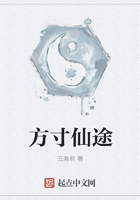They began to love one another again. Often, even in the middle of the day, Emma suddenly wrote to him, then from the window made a sign to Justin, who, taking his apron off, quickly ran to La Huchette. Rodolphe would come; she had sent for him to tell him that she was bored, that her husband was odious, her life frightful.
"But what can I do?" he cried one day impatiently.
"Ah! if you would--"
She was sitting on the floor between his knees, her hair loose, her look lost.
"Why, what?" said Rodolphe.
She sighed.
"We would go and live elsewhere--somewhere!"
"You are really mad!" he said laughing. "How could that be possible?"
She returned to the subject; he pretended not to understand, and turned the conversation.
What he did not understand was all this worry about so ****** an affair as love. She had a motive, a reason, and, as it were, a pendant to her affection.
Her tenderness, in fact, grew each day with her repulsion to her husband. The more she gave up herself to the one, the more she loathed the other. Never had Charles seemed to her so disagreeable, to have such stodgy fingers, such vulgar ways, to be so dull as when they found themselves together after her meeting with Rodolphe. Then, while playing the spouse and virtue, she was burning at the thought of that head whose black hair fell in a curl over the sunburnt brow, of that form at once so strong and elegant, of that man, in a word, who had such experience in his reasoning, such passion in his desires. It was for him that she filed her nails with the care of a chaser, and that there was never enough cold-cream for her skin, nor of patchouli for her handkerchiefs. She loaded herself with bracelets, rings, and necklaces. When he was coming she filled the two large blue glass vases with roses, and prepared her room and her person like a courtesan expecting a prince. The servant had to be constantly washing linen, and all day Felicite did not stir from the kitchen, where little Justin, who often kept her company, watched her at work.
With his elbows on the long board on which she was ironing, he greedily watched all these women's clothes spread about him, the dimity petticoats, the fichus, the collars, and the drawers with running strings, wide at the hips and growing narrower below.
"What is that for?" asked the young fellow, passing his hand over the crinoline or the hooks and eyes.
"Why, haven't you ever seen anything?" Felicite answered laughing. "As if your mistress, Madame Homais, didn't wear the same."
"Oh, I daresay! Madame Homais!" And he added with a meditative air, "As if she were a lady like madame!"
But Felicite grew impatient of seeing him hanging round her. She was six years older than he, and Theodore, Monsieur Guillaumin's servant, was beginning to pay court to her.
"Let me alone," she said, moving her pot of starch. "You'd better be off and pound almonds; you are always dangling about women.
Before you meddle with such things, bad boy, wait till you've got a beard to your chin."
"Oh, don't be cross! I'll go and clean her boots."
And he at once took down from the shelf Emma's boots, all coated with mud, the mud of the rendezvous, that crumbled into powder beneath his fingers, and that he watched as it gently rose in a ray of sunlight.
"How afraid you are of spoiling them!" said the servant, who wasn't so particular when she cleaned them herself, because as soon as the stuff of the boots was no longer fresh madame handed them over to her.
Emma had a number in her cupboard that she squandered one after the other, without Charles allowing himself the slightest observation. So also he disbursed three hundred francs for a wooden leg that she thought proper to make a present of to Hippolyte. Its top was covered with cork, and it had spring joints, a complicated mechanism, covered over by black trousers ending in a patent-leather boot. But Hippolyte, not daring to use such a handsome leg every day, begged Madame Bovary to get him another more convenient one. The doctor, of course, had again to defray the expense of this purchase.
So little by little the stable-man took up his work again. One saw him running about the village as before, and when Charles heard from afar the sharp noise of the wooden leg, he at once went in another direction.
It was Monsieur Lheureux, the shopkeeper, who had undertaken the order; this provided him with an excuse for visiting Emma. He chatted with her about the new goods from Paris, about a thousand feminine trifles, made himself very obliging, and never asked for his money. Emma yielded to this lazy mode of satisfying all her caprices. Thus she wanted to have a very handsome ridding-whip that was at an umbrella-maker's at Rouen to give to Rodolphe. The week after Monsieur Lheureux placed it on her table.
But the next day he called on her with a bill for two hundred and seventy francs, not counting the centimes. Emma was much embarrassed; all the drawers of the writing-table were empty; they owed over a fortnight's wages to Lestiboudois, two quarters to the servant, for any quantity of other things, and Bovary was impatiently expecting Monsieur Derozeray's account, which he was in the habit of paying every year about Midsummer.
She succeeded at first in putting off Lheureux. At last he lost patience; he was being sued; his capital was out, and unless he got some in he should be forced to take back all the goods she had received.
"Oh, very well, take them!" said Emma.
"I was only joking," he replied; "the only thing I regret is the whip. My word! I'll ask monsieur to return it to me."
"No, no!" she said.
"Ah! I've got you!" thought Lheureux.
And, certain of his discovery, he went out repeating to himself in an undertone, and with his usual low whistle--
"Good! we shall see! we shall see!"















